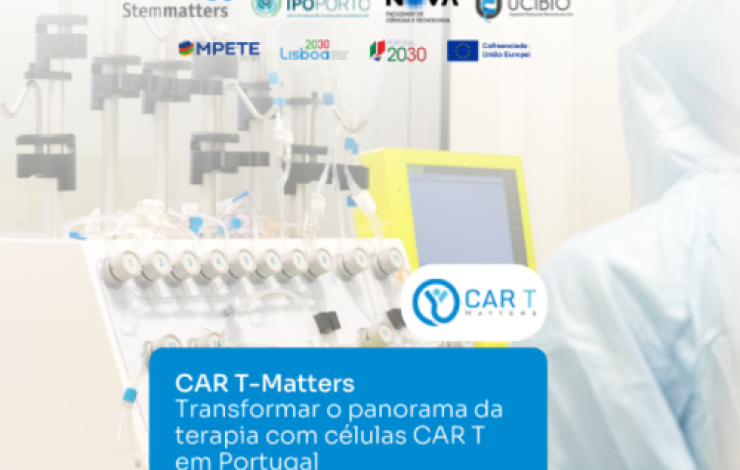07-07-2025

Paula Videira, leader of the Glycoimmunology Research lab at UCIBIO - NOVA FCT is a key partner in a national consortium selected for competitive funding under the COMPETE 2030 program to establish the first Portuguese platform for the development and production of CAR T cell therapies for cancer treatment. The project, entitled “CAR T-Matters – Transforming the Landscape of CAR T Cell Therapy in Portugal,” is coordinated by the biotechnology company Stemmatters, in collaboration with the Portuguese Oncology Institute of Porto (IPO Porto) and researchers from UCIBIO - NOVA FCT and LAQV-NOVA FCT.
The initiative aims to address critical gaps in Portugal's ability to independently develop and manufacture CAR T therapies, an innovative and personalized form of cancer immunotherapy that has shown remarkable success, particularly in treating hematological malignancies.
Paula Videira’s Lab will lead the scientific research component of the project, applying UCIBIO’s expertise in glycobiology and immunology to improve the therapeutic potential of CAR T cells. The research team includes also the researcher Florbela Pereira, an expert in cheminformatics from LAQV, another research unit at NOVA FCT, the researcher Zélia Silva and the PhD student Patrícia Sobral, reinforcing the multidisciplinary collaboration essential to the success of this initiative.
CAR T-Matters represents a pivotal step in reducing Portugal's dependence on foreign production centers for advanced therapies. Currently, Portuguese patients eligible for CAR T treatment must have their immune cells shipped abroad for processing, a costly and time-intensive process. By creating national capacity in this field, the project aims to streamline access, reduce costs, and foster biomedical innovation within Portugal.
CAR T-Matters began in February 2025 and will run for three years. It is co-financed by the COMPETE 2030 initiative through the European Regional Development Fund (ERDF). The consortium combines scientific excellence, clinical leadership, and industrial capacity to establish a sustainable national infrastructure for CAR T cell therapy research, development, and application.